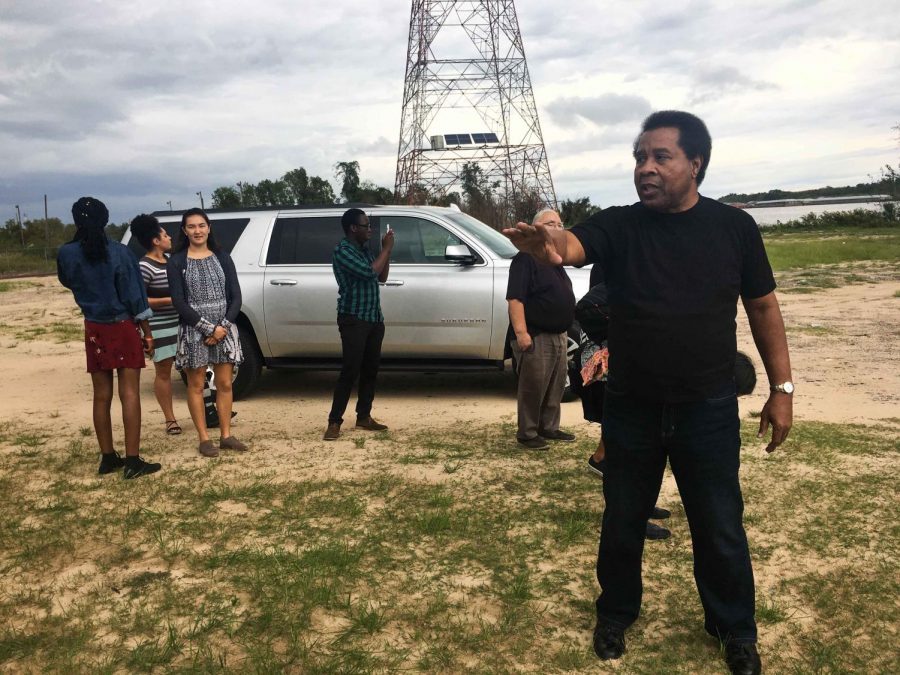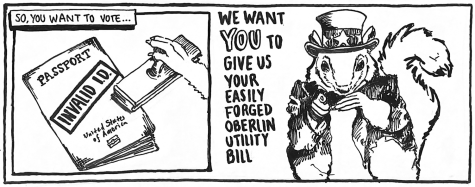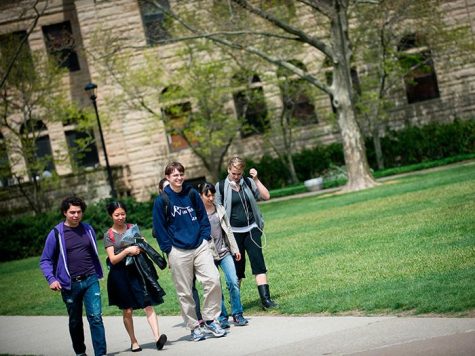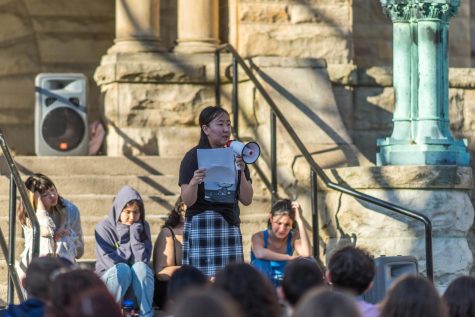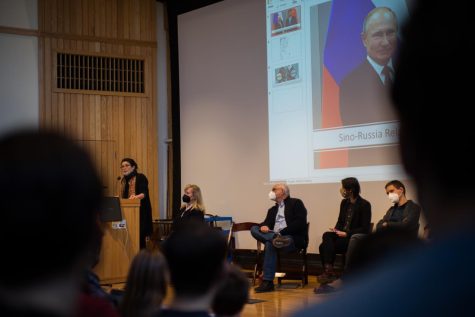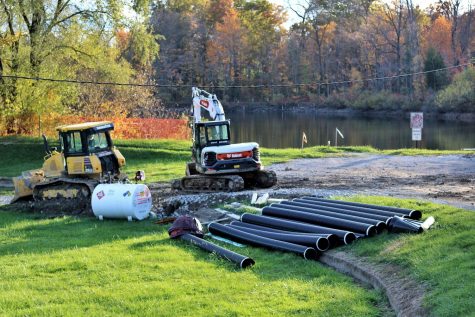Students Help Africatown Fight for Environmental Justice
Photo courtesy of Chie Sakakibara
Major Joe Womack of the Mobile Environmental Justice Action Coalition leads Oberlin students on a tour of Africatown.
Associate Professor of Environmental Studies and Comparative American Studies Janet Fiskio added a new facet to the Environmental Studies program when she led a group of students to historic Africatown in Alabama during the spring semester of 2015. This semester, Fiskio expanded this project by teaching Environmental Justice and Local Knowledge, a course dedicated to the environmental justice movement through community-based research with organizations in Africatown. Fiskio and Assistant Professor of Environmental Studies Chie Sakakibara received a National Science Foundation conference grant through the Arctic Social Sciences Program to fund an oral history workshop and comparative study of Africatown and Utqiagvik, Alaska, two front-line communities in climate justice.
Located just three miles north of Mobile, AL, Africatown was founded by the last group of enslaved Africans brought to the United States in 1859. Like many other free Black towns along the Gulf Coast, Africatown is plagued by industries that pollute its food, water, soil, and air.
The collaboration between Oberlin and Africatown began in summer 2014, when Fiskio was volunteering at the Tar Sands Healing Walk in Alberta, Canada, and met Ms. May and Ms. Louise, two elders from Africatown. The purpose of the event was to protect the Althabasca River and Basin and raise awareness of the devastation of the local environment by the extractive tar sands industry. The issue hit home for the two women, since Africatown had recently been targeted for a series of tar sands development projects.
Inspired by their solidarity, Fiskio invited folks from Africatown to speak at the College in December 2014. In return, Major Joe Womack of the Mobile Environmental Justice Action Coalition invited Fiskio and College students to Africatown the following spring.
Although many historians and academics have studied Africatown extensively, Fiskio said her goal is to engage the community as researchers and experts on their own history.
“Working collaboratively with community members — including elders, youth, nonprofit leaders, and pastors — we are building a digital archive to help preserve Africatown’s history,” Fiskio said.
Fiskio and students have returned to Africatown several times since the first trip. They attended several services at historic community churches, visited Old Plateau Cemetery, where the community’s founders are buried, conducted door-to-door health surveys, toured sites for planned community development, and gave presentations on issues deemed important by members of the community.
College junior Ify Ezimora, an environmental studies student representative and teaching assistant for Fiskio’s course, lived and volunteered in Africatown with College junior Kaylee Elliott, a student in Fiskio’s course, last year during Winter Term.
Elliott said Africatown was a warm and inviting community from the moment she got there.
“It was great to see how much they were already doing in the community to preserve the history and stories of Africatown and raise awareness of the injustices the industry had committed against the community,” Elliott said. “Africatown represents so much more than the environmental racism, and it would be completely wrong of anyone to reduce it to just that.”
Africatown exemplifies environmental racism because industries have taken advantage of the community and polluted their resources, Elliott said. She added, however, that the spirit of the people in the community outshines its circumstances.
“I think the people of Africatown have made the biggest impact for me,” Elliott said. “I believe any community under these circumstances deserves justice, but the place Africatown holds in American history is an extremely important one [that] I believe people should pay attention to and care about.”
Students in Fiskio’s class spent fall break in Africatown, collaborating with several local organizations and giving presentations to MEJAC on fishing advisories, petrochemical storage, and dioxin.
Ezimora, who has been to Africatown five times, said the community has a special place in her heart.
“I think often it is easy to become detached from places we are not emotionally or spatially near, so being able to visit Africatown so many times has been a blessing in staying connected to the community and building their histories and stories into my schema of Africatown, Alabama,” Ezimora said. “When Janet came to me about teaching a course this semester that would focus on Africatown, I was really excited. I was interested to see how [the project] would translate to a more formal, classroom setting.”
Both Ezimora and Elliott expressed satisfaction in the course, saying that Fiskio’s authenticity is something that is hard to find in some professors.
“Janet is not the type of person to conduct drive-by research, where she’s in and out of a community before she’s made any connection,” Ezimora said. “I really admire that, and it allows me to trust every decision she makes in this collaboration, because I know all these decisions, suggestions, and comments are coming from an invested place.”
Fiskio, however, said that the real educators are the residents of Africatown.
“I’d say that I’m learning along with the students,” Fiskio said. “The community members are the experts and teachers in this collaboration, and students are essential to the project as collaborators, researchers, and mentors to new students.”
Elliott said she recommends the course to anyone, not just environmental studies majors.
“There are few courses offered at Oberlin where you have the opportunity to be a part of real world social justice work and a project that is so connected to the people and place we are learning about,” Elliott said. “Being able to complete the research and presentations to give something to the community, I feel like I have given back at least a small amount of all they have given to me.”
Fiskio said that students interested in the project are encouraged to talk to her or students who took Environmental Justice and Local Knowledge this semester. The course will be offered again next fall. Fiskio plans to take students to Africatown again during Winter Term, and in June and November 2018.


